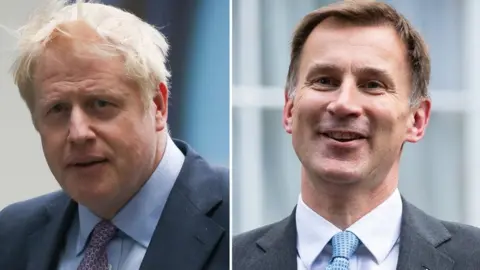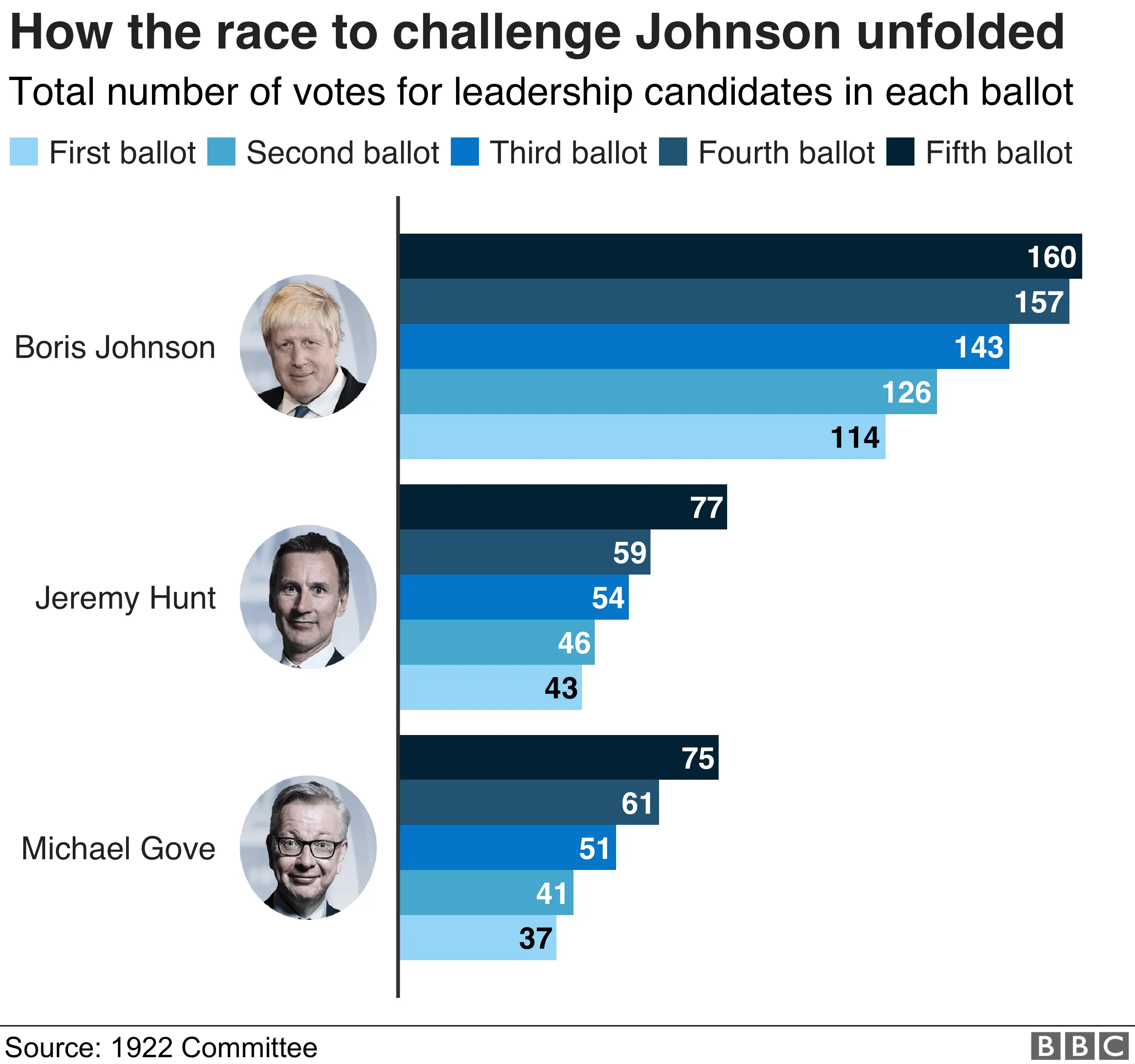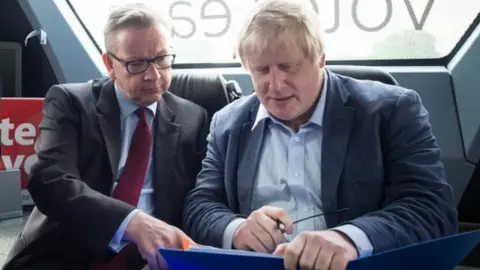Tory leadership: Tactical voting claims over Johnson and Hunt win
 Getty Images
Getty ImagesBoris Johnson and Jeremy Hunt will go head-to-head to become Conservative leader amid claims tactical voting led to Michael Gove's exit from the race.
Mr Johnson's team has denied such tactics - but at least one backer suggested some MPs may have switched votes to end Mr Gove's campaign.
Mr Hunt promised Mr Johnson "the fight of his life" in the coming weeks.
They have to convince the 160,000 party members to vote for them, with the contest ending in late July.
Mr Johnson had been widely expected to be one of the final two candidates, having topped all four previous ballots of Conservative MPs, with Environment Secretary Michael Gove and Foreign Secretary Jeremy Hunt vying for second spot.
Two ballots were held on Thursday, resulting in the elimination of Home Secretary Sajid Javid and Mr Gove.
As soon as the final parliamentary ballot result was announced on Thursday, MPs began speculating there may have been foul play after analysing the number of votes cast for each candidate.
Five MPs who had supported Mr Javid - Chris Philp, Chris Skidmore, Mims Davies, Kevin Foster and Mike Wood - promised to switch to Mr Johnson in the final secret ballot.
But Mr Johnson's vote increased by just three.
Simon Clarke, who is backing Mr Johnson, suggested some MPs may have "freelanced" outside the official campaign.
"I think some people might have taken it upon themselves to try and steer the outcome," he said.

Mr Johnson and Mr Gove fell out during the 2016 leadership contest - which saw Theresa May become prime minister - when Mr Gove abandoned Mr Johnson's bid to be leader to launch his own.
After Thursday's results, some of Mr Gove's supporters claimed Mr Johnson's backers may have voted for Mr Hunt to eliminate their candidate.
However, Mr Gove's campaign manager, Mel Stride, dismissed suggestions there had been a vote-switching operation, saying: "It doesn't seem to me on first observation of this that there has been.
"Because we didn't see a situation where, as some had speculated, a very large number of votes might have transferred from, say, Boris Johnson to Jeremy Hunt.
"It would appear to me everybody has behaved pretty much as one would hope they would."
 PA
PAConservative MP Johnny Mercer, who supports Mr Johnson, also denied there had been an "underhand operation".
"I am pretty close to Mr Johnson and to the operation and the campaign and I just haven't seen it," he told BBC Radio 4's Today programme.
Sir Alan Duncan, who is supporting Mr Hunt, told Channel 4 News: "There's talk of one team using proxies designed for their candidate being used for another to boost them.
"Well, you know, this happens in all leadership contests."
Mr Johnson and Mr Hunt will now take part in hustings in front of Conservative Party members around the country, before members' postal votes are counted, with the final result to be announced during the week of 22 July.
There will be a head-to-head debate on ITV on 9 July.


There's no doubt that Mr Johnson is, at this stage (and there's a long way to go), widely expected to end up in Number 10.
But this result is an enormous relief to his camp, for the simple reason that they think Mr Hunt is easier to beat.
Forget any differences in style between the two challengers and their comparative talents - Jeremy Hunt voted Remain in the EU referendum.
And for many Tory members it is a priority for the next leader to have been committed to that cause, rather than a recent convert, however zealous.

Following the result on Thursday, Mr Johnson tweeted he was "deeply honoured" to get the backing of 160 MPs - more than half of the total.
Meanwhile, Mr Hunt acknowledged Mr Johnson was the frontrunner to become party leader and prime minister, tweeting that he was the "underdog" but saying that, in politics, "surprises happen".
